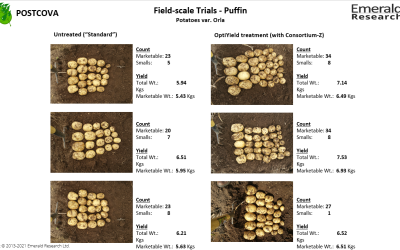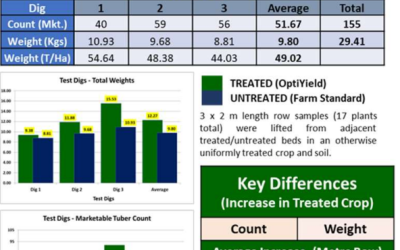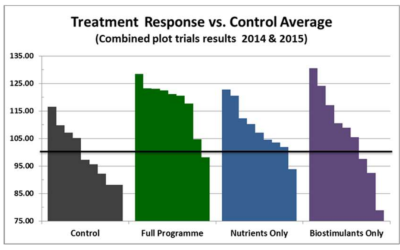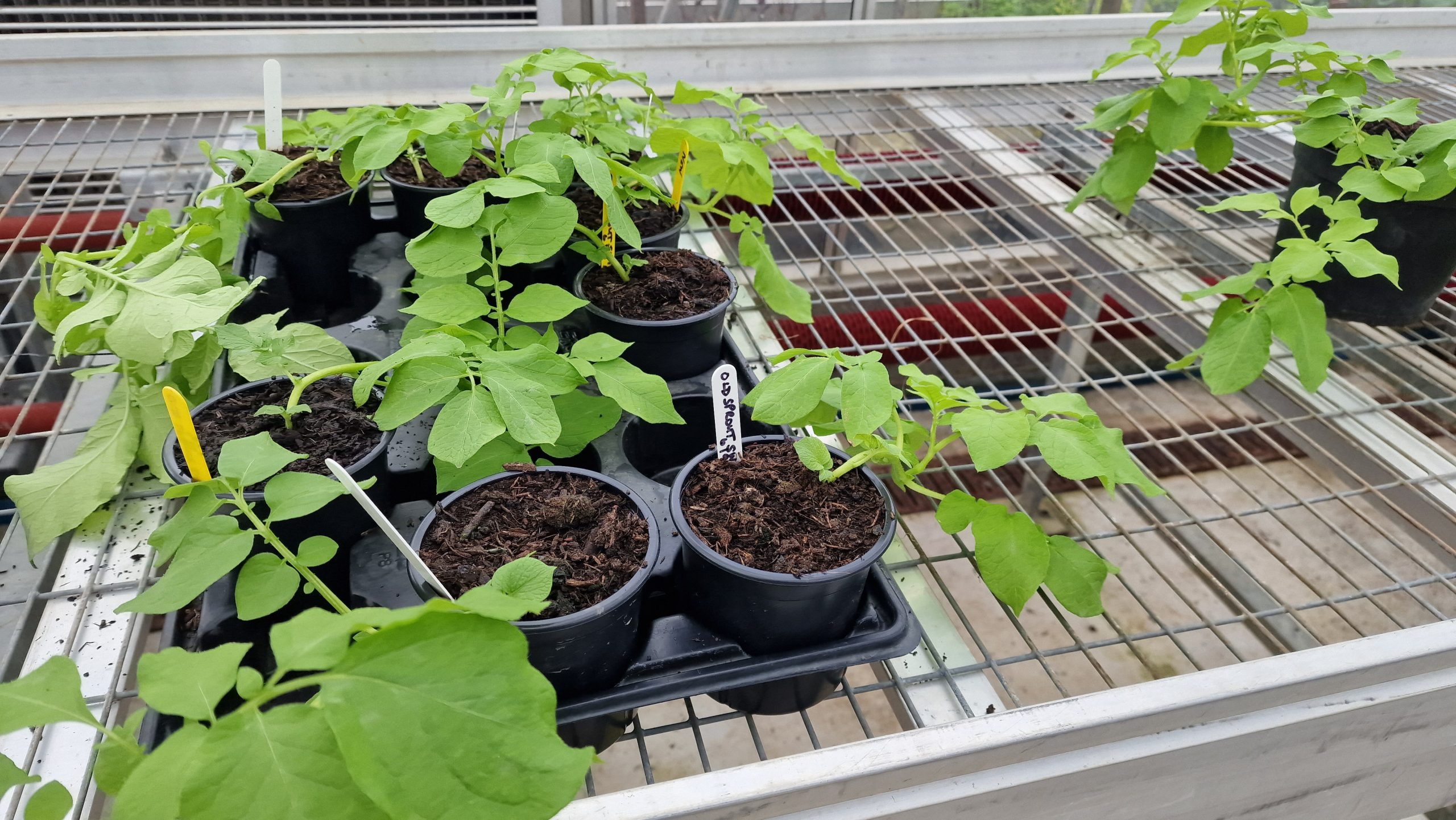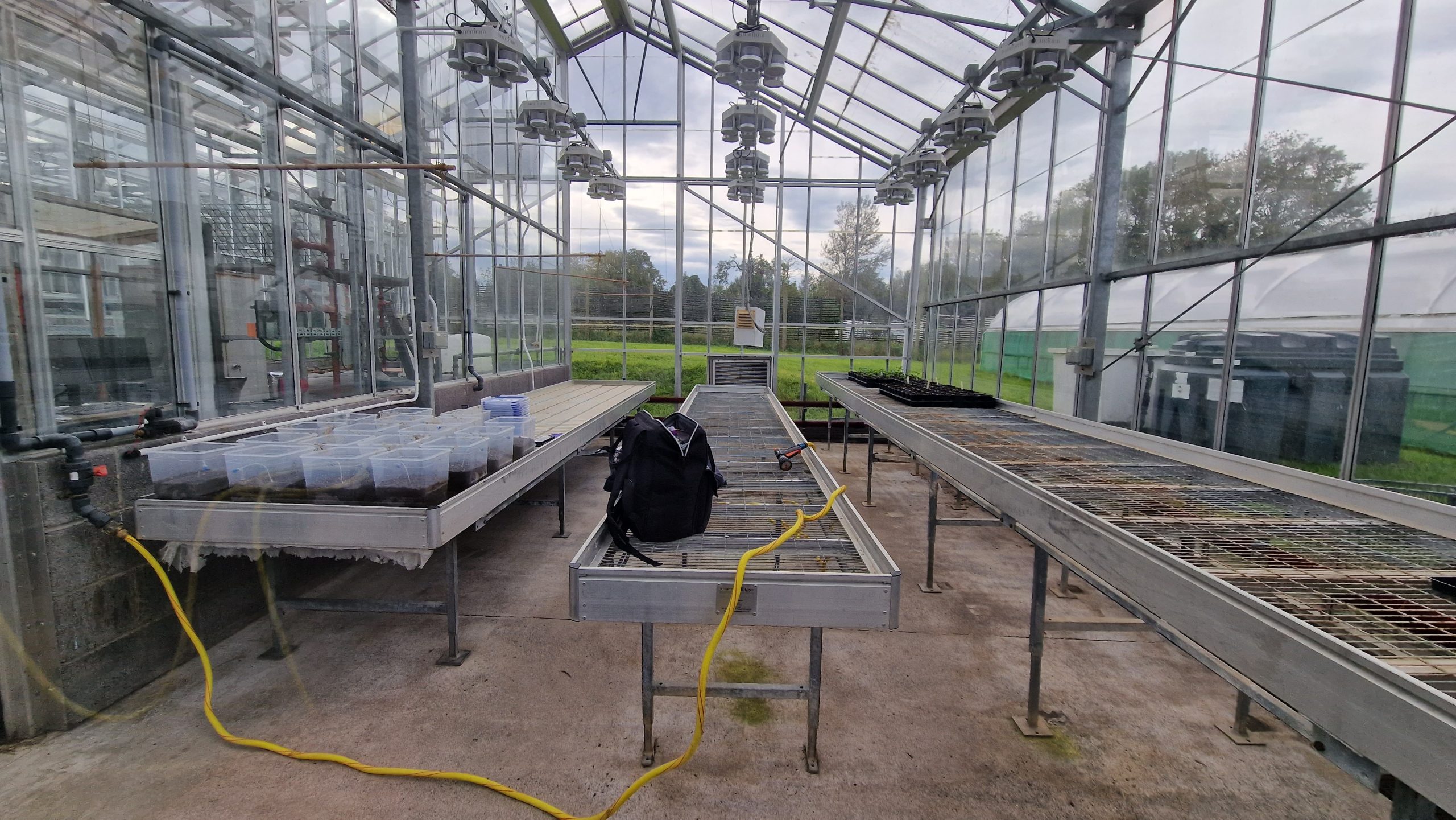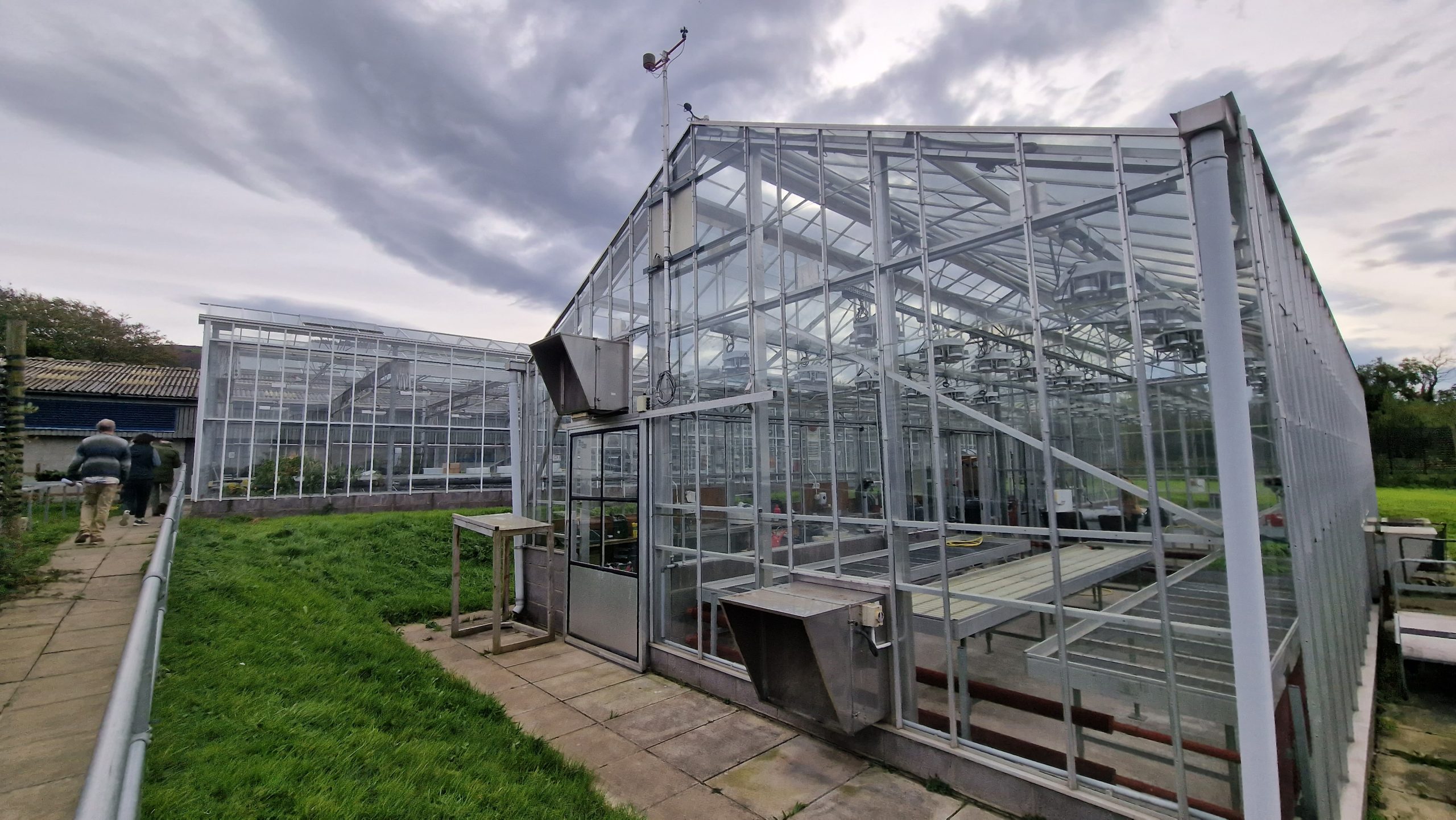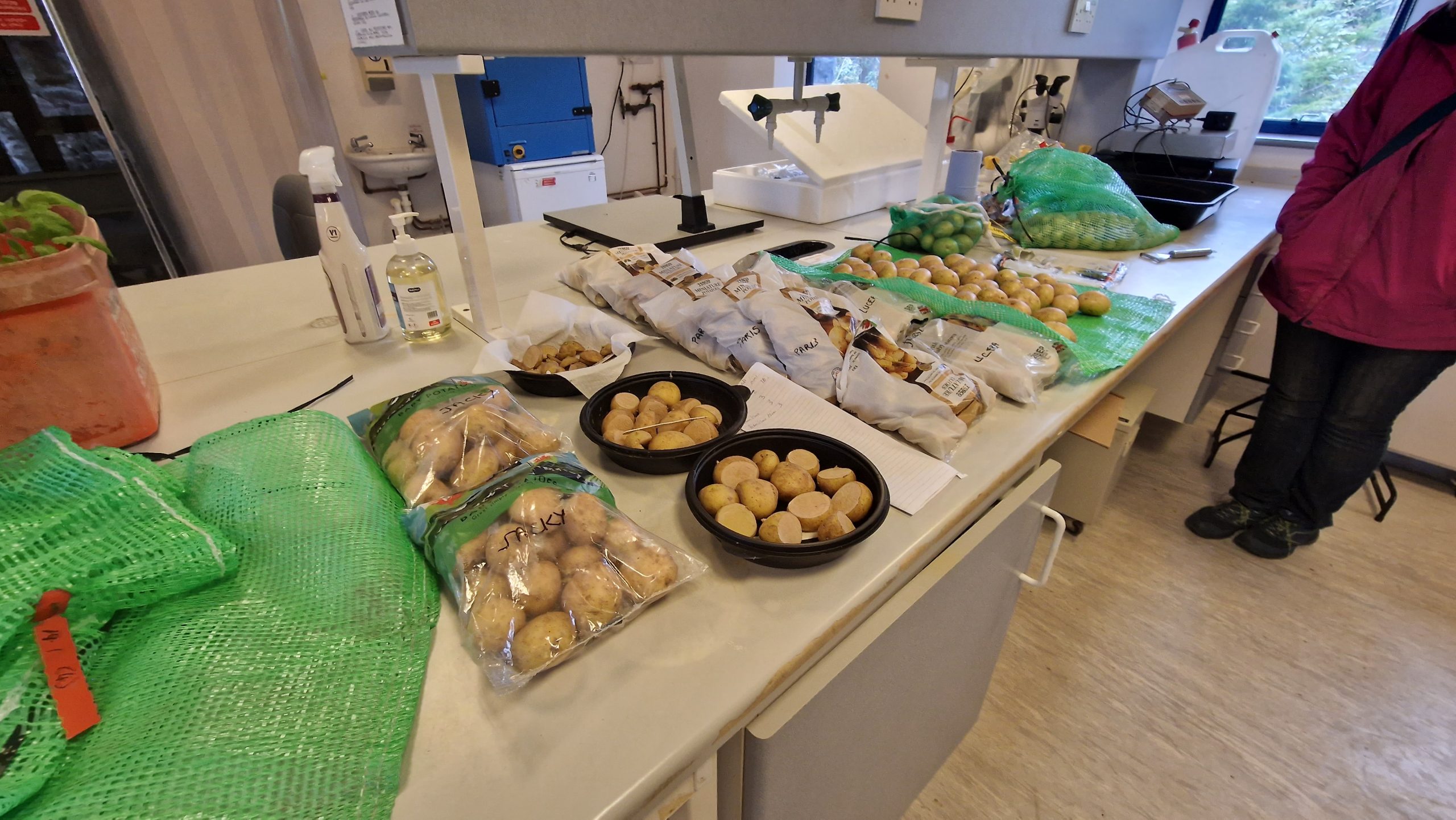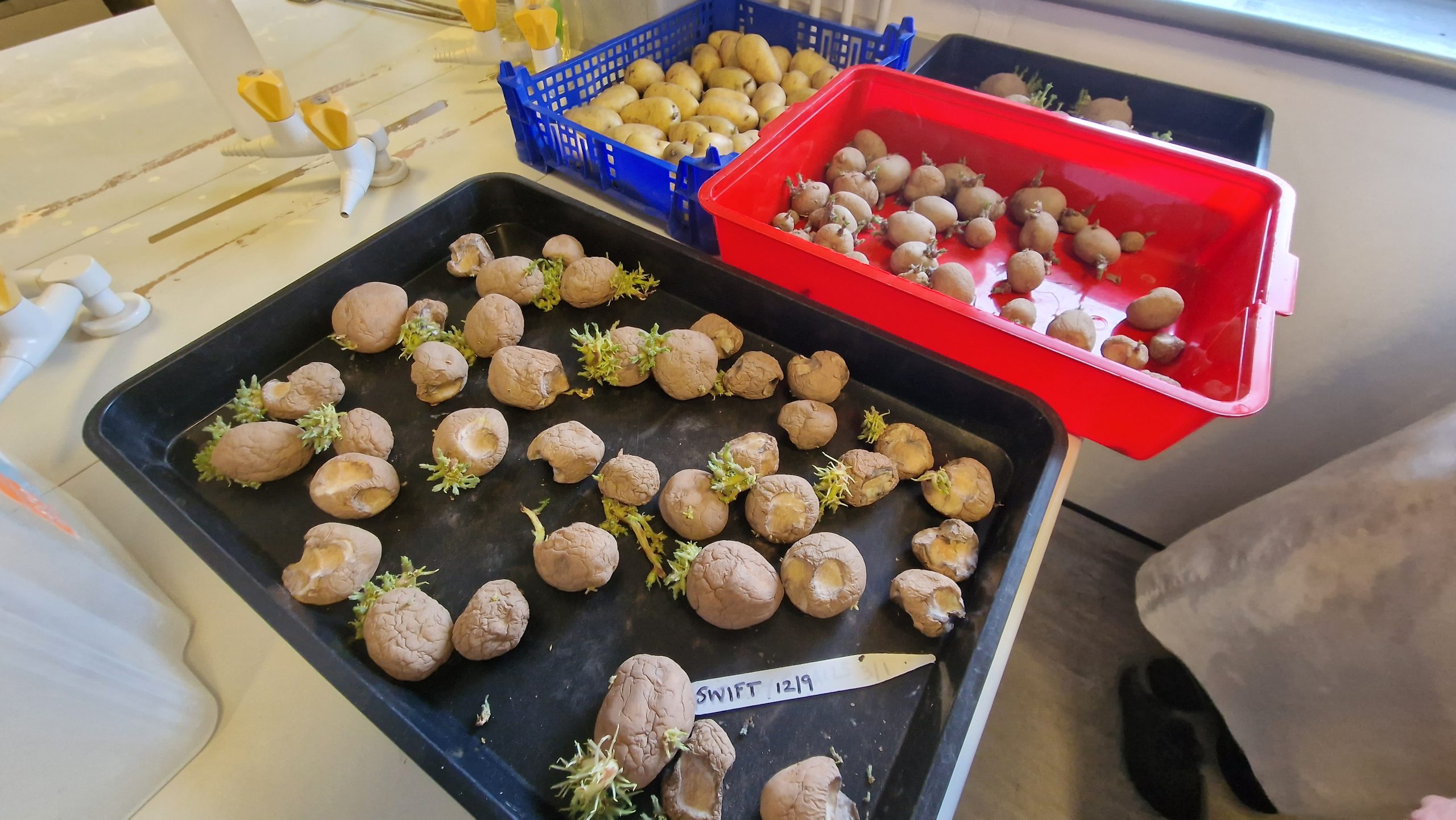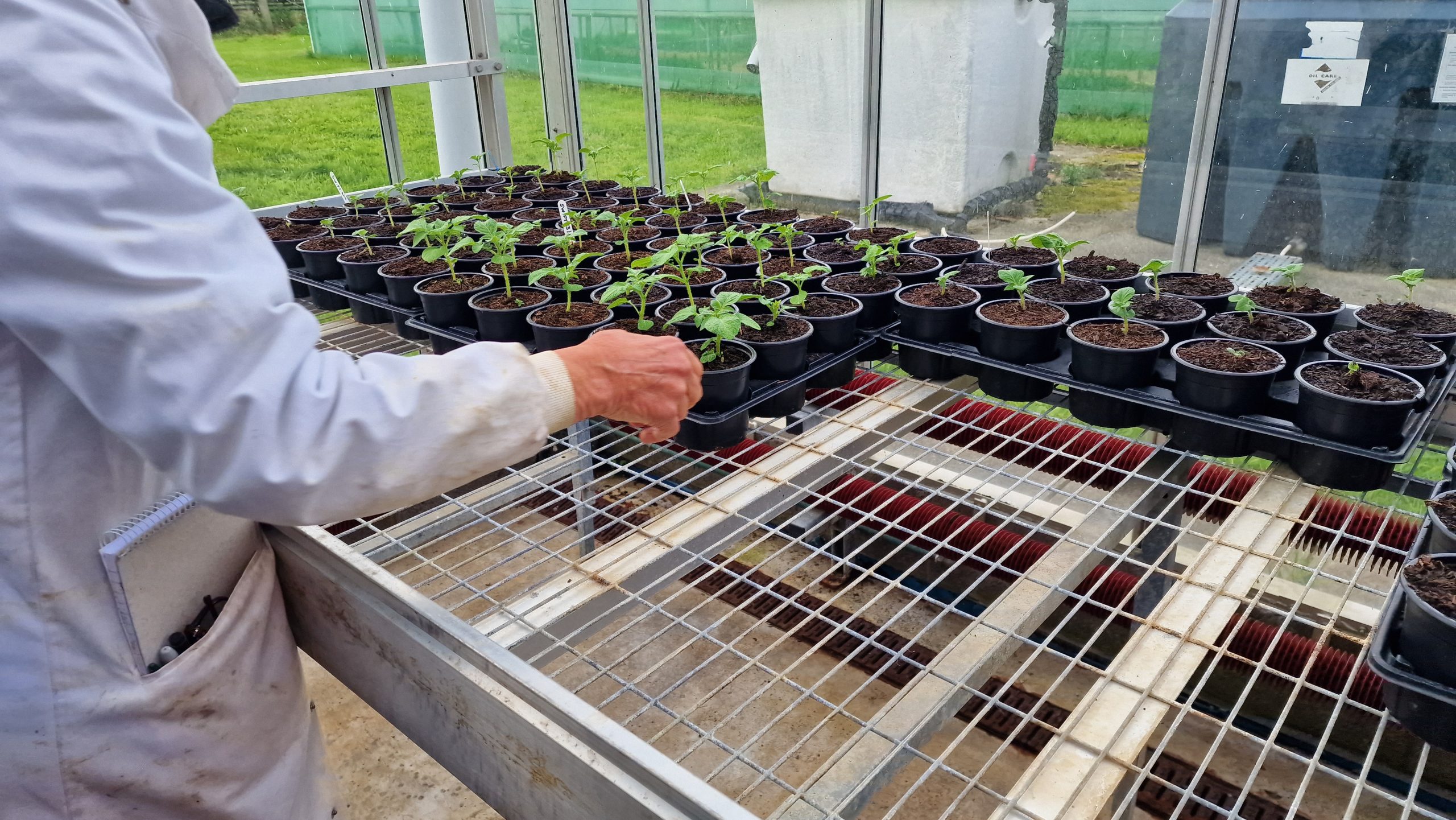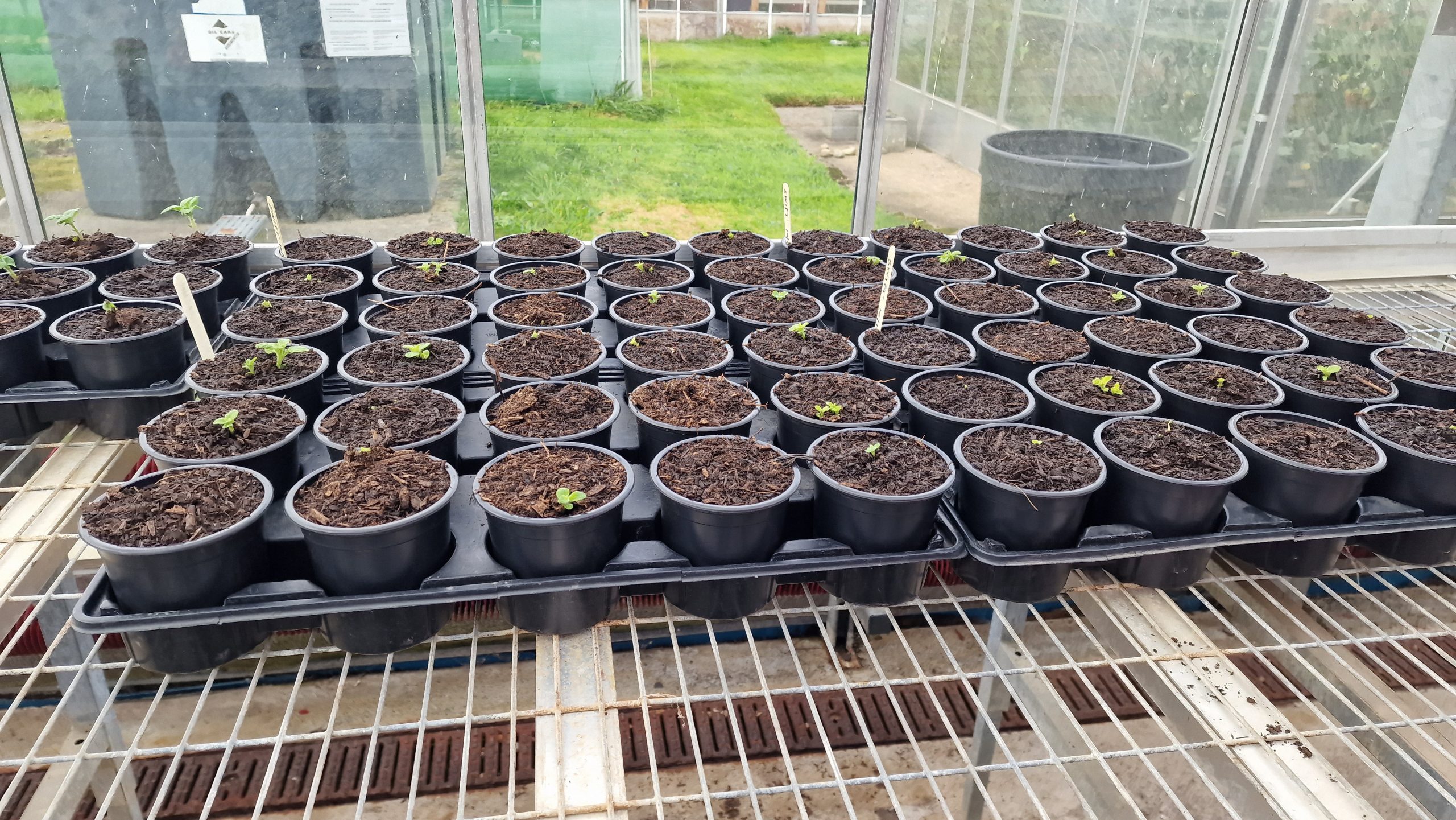RESEARCH
We are heavily committed to R&D and are especially focused on developing a first-class understanding of crop nutrition and crop growth developed through laboratory research and field crop trials, which take place at our research facility at Bangor University’s Henfaes Research Centre.
From our laboratory, we continue to research and develop new ways of producing, combining, formulating and delivering bioactive compounds, whether they are nutrients, biostimulants or biologicals. For this, we work with a number of institutions both in the UK and abroad in a collaborative manner for mutual benefit.
RESEARCH PROJECTS
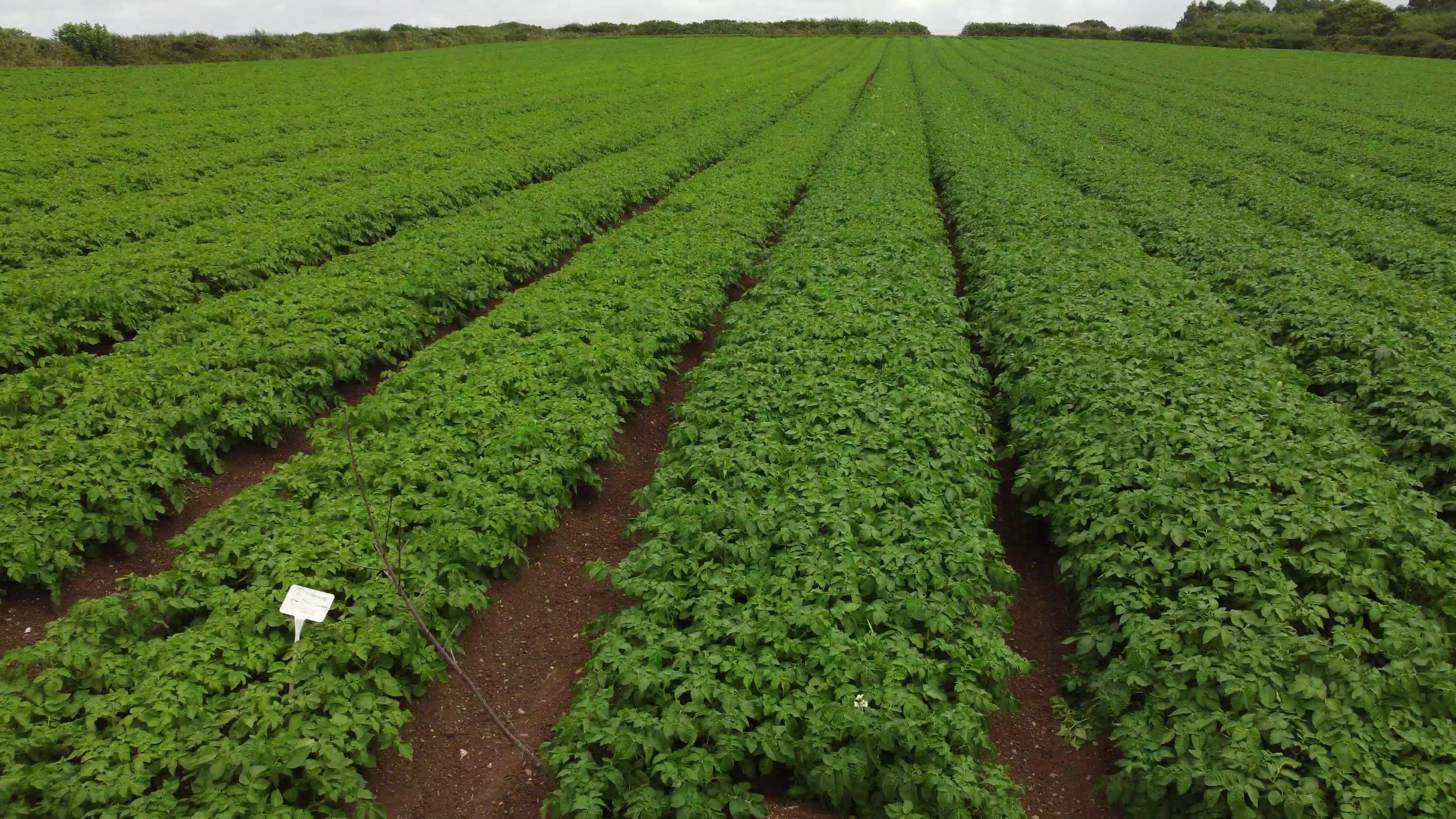
TRIP
Innovate UK funds three-year programme to study regenerative potato commercialisation.

NASPA
Shown to alter nitrogen cycling rate, reduce the need for nitrogen fertilisers as well as associated leaching of nitrates into water streams and of N2O emissions from agricultural soils.
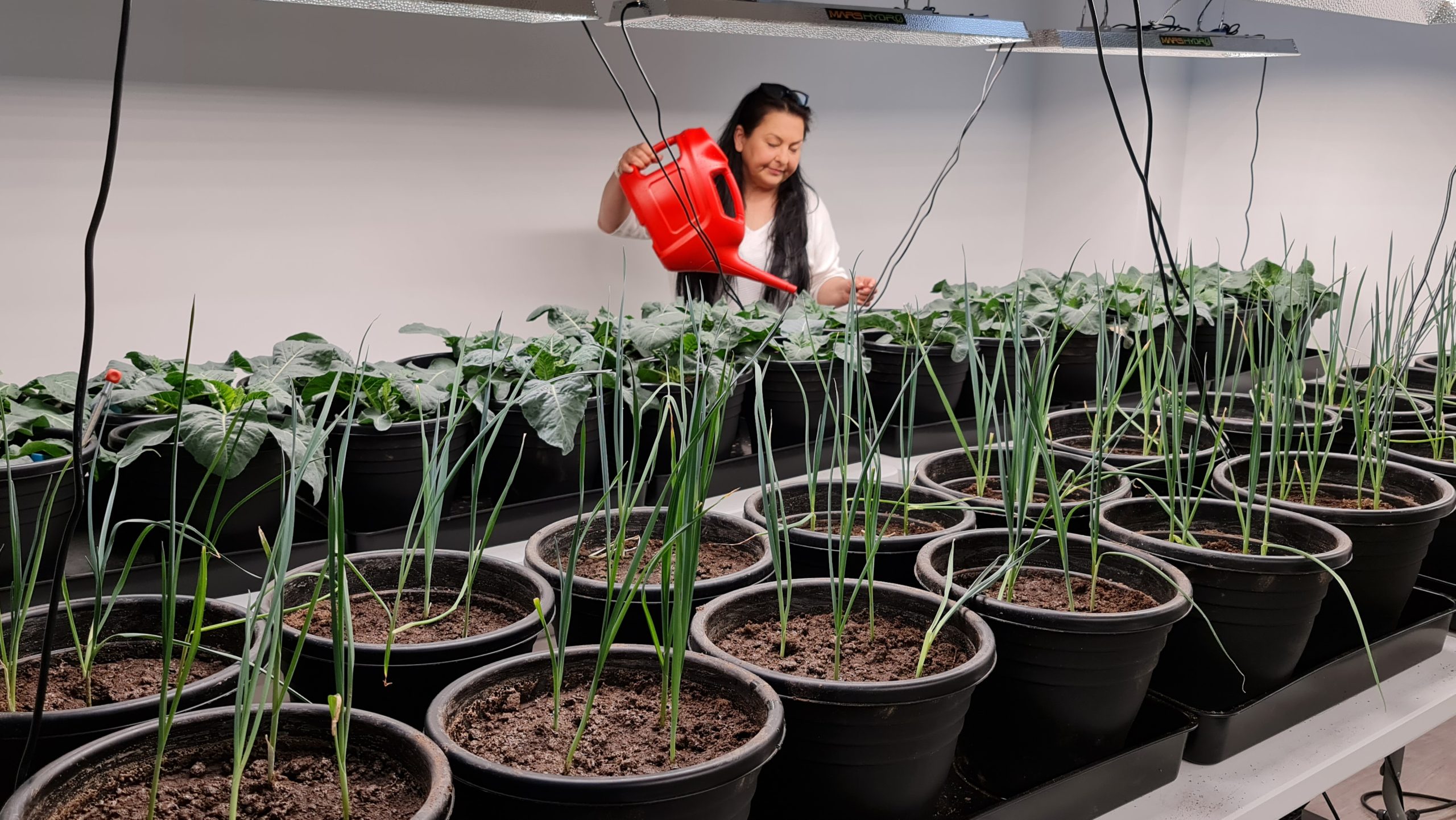
POSTCOVA
Emerald Research has grants from the BEACON project working with Bangor University to develop new, highly active foliar nutrient products and biostimulant technologies.
And many more…
Maincrop Potato Trials – Cresswell Barn Farm
As part of the NASPA and PostCova projects, field strip trials were carried out at Cresswell Barn Farm, by kind permission of the Elliott family. They grow around 170ha of potatoes on the silt clay loams, next to the Cleddau estuary in Pembrokeshire. The strip trial...
Maincrop Potato Trial – OptiYield® System
A comparison between OptiYield treated and Farm Standard portions of maincrop processing potatoes (var. Royal) conducted on 19th October 2018 at GooderWestwood. (Grid Ref.: 54.146921, -0.747831). By kind permission of the Wilson Family of CJ Wilson & Sons. The...
OptiYield – Independent Replicated Field & Plot Carrot Trials
Independent replicated field trials were carried out by Huntapac Produce Ltd. on maincrop carrots, it measured the effect of OptiYield foliar nutrients & biostimulants as recommend by the OptiYield System on crop growth, quality and marektable yields. The...
Our Research & Development Facilities.
KEY TRIALS
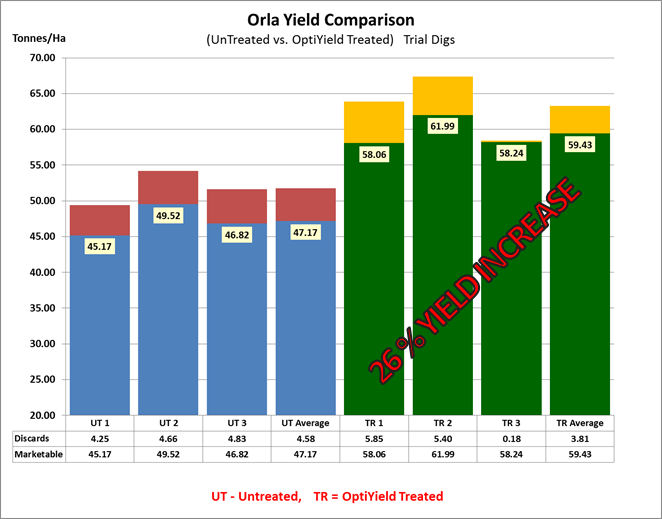
OptiYield® Potato Trials
In 2013 initial replicated trials were managed independently by NDSM Ltd at a site in Yorkshire, the randomised trials consisted of four fully replicated plots 10x4m in size for each treatment.
Following routine soils analysis for pH, P, K, and Mg, base fertilisers were applied on standard recommendations across the field, producing a control yield of 56.3t/ha.
Emerald Research Ltd. (ERL) carried out a more thorough soil analysis and ran it through the OptiYield computer programme. OptiYield produced a full set of recommendations balancing 12 nutrients and complementary biostimulants at targeted growth stages.
To assess the effect of each individual product, each was run as a separate trial, comparing full nutrition with or without additional, different biostimulants developed by ERL.
Initial results were encouraging showing marketable yield improvements of around 10.0%.
Since then the programme has been subjected to continuous improvement.
Subsequent replicated and field trials have consistently and reliably provided results with marketable yields in the range of 15 – 30% depending on variety and location.
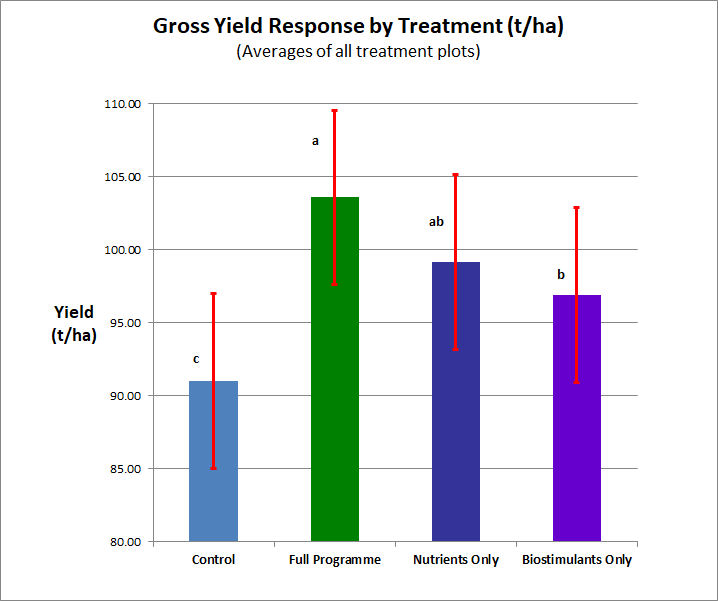
OptiYield® Carrot Trials
Central to the Emerald Advisory Programme is the unique, advanced and proprietary OptiYield soil analysis & interpretation software system that produces full crop nutrition programmes for over 30 World crops – tropical, subtropical and temperate.
OptiYield uniquely calculates ideal full crop nutrition & biostimulation recommendations and is based on the comprehensive integration of 30 years expertise and research including over 1,000 independently published scientific papers equating soil, environmental conditions and crop responses to broad spectrum nutrients, biostimulants & biological compounds, minor nutrients and micronutrients.
OptiYield carrot trials have been conducted since 2014 in Yorkshire and Shropshire. All replicated trials were managed independently by NDSM Ltd., a highly experienced and professional independent crop trials company and were located within first-class commercial crops. The Carrot variety studied was mainly maincrop Nairobi routinely treated against a strict crop protection protocol throughout the growing season.
Subsequent replicated and field trials have consistently and reliably provided results with marketable yields in the range of 15 – 20% depending on variety and location. Analysis has also demonstrated significant increases in overall mineral content and 10 – 15% increase in BRIX s
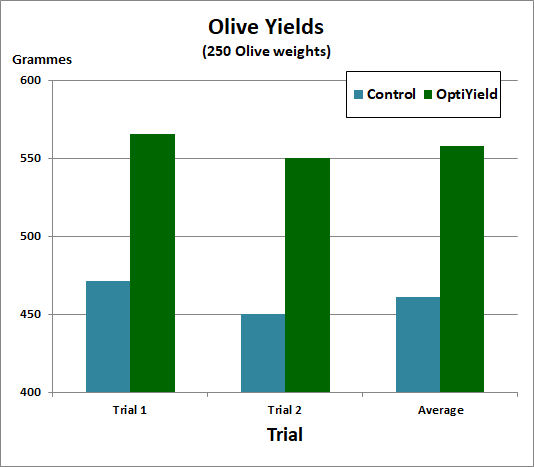
OptiYield® Olive Trials (Portugal)
From detailed soil analysis the OptiYield software created full nutrient availability and Olive nutrition models and produced a full nutrition/biostimulant programme specific to the Olivais do Sul olive trial site.
OptiYield continues to show very positive results in trials in crops as diverse and Leeks and Olives!
The data clearly demonstrate overall increases of 21.06% (Yield Weight) and 21.09% (Density) of the OptiYield treatment compared to the Control, where the Density measurement reflects both larger olives and higher oil content.
At the time of harvest the weight increase was at its greatest at 22.22% higher than the Control.

